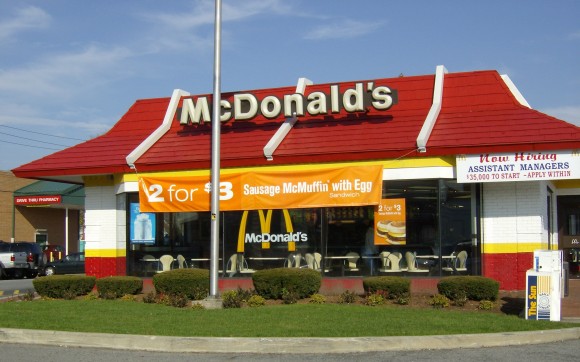A federal judge in northern Illinois has dismissed a racial discrimination lawsuit brought by African-American McDonald’s franchisees accusing McDonald’s of steering them to underperforming stores.
U.S District Court Judge Harry D. Leinenweber ruled that the plaintiff Black franchisees failed to provide specific facts to support their legal claims. The court also found that even if there had been discriminatory practices, the claims were beyond the two year statute of limitations, since the last acquisition by either plaintiff was in 2012.
Leinenweber gave the plaintiffs 30 days to file an amended complaint.
Two brothers, James Byrd Jr. and Darrell Byrd, who have been McDonald’s franchisees for several decades, brought the suit seeking class action status.
The judge said the complaint failed to tie any alleged discriminatory conduct by McDonald’s managers and executives to discrimination experienced by plaintiffs or any purported class member. Plaintiffs also did not even allege that plaintiffs or any purported class members were subjected to any of these alleged discriminatory policies.
The major complaint alleged was that “McDonald’s growth strategy has been predatory in nature, targeting Black consumers, markets, and territories by steering Black franchisees to Black neighborhoods with high overhead costs—including higher security, insurance, and employee turnover—where White franchisees refused to own and operate restaurants.”
This allegedly discriminatory practice reduced the number of Black franchisees and increased the revenue disparity between Black and White franchisees, the complaint said.
The complaint contended that “[t]hese differences are statistically significant and are the result of historic racial bias and barriers built into the McDonald’s franchise system.”
McDonald’s moved to dismiss the complaint contending that the plaintiffs failed to allege intentional discrimination and “but for” causation. McDonald’s also argued that the matters complained of are all barred by the statute of limitation.
Plaintiffs countered that their complaint sets forth a pattern and practice by McDonald’s that has occurred throughout its franchise terms and thus it qualifies for the “continuing violation” exception to the statute of limitations defense
But the district court disagreed, noting that the Supreme Court has held that “discrete acts” such as termination, failure to promote, denial of transfer, or refusal to hire are “easy to identify” and do not constitute continuing violations but are claims that “can and should be brought on a timely basis.”
The court found that the allegation that McDonald’s steers Black franchisees to economically undesirable locations is “clearly pre-contractual conduct and subject to the two-year statute of limitations.”
McDonalds’s faces another lawsuit by more than 50 Black former franchisees who complain that they were pressured by the company to open stores in crime-ridden areas and then denied financial help extended to white franchisees.
The fast food chain has also been sued in Los Angeles for $10 billion by media entrepreneur Byron Allen, who accuses the firm of racial discrimination for not advertising enough with Black-owned media outlets.
Topics Lawsuits Legislation
Was this article valuable?
Here are more articles you may enjoy.



 Florida Senate President Says No Major Insurance Changes This Year
Florida Senate President Says No Major Insurance Changes This Year  Florida’s Commercial Clearinghouse Bill Stirring Up Concerns for Brokers, Regulators
Florida’s Commercial Clearinghouse Bill Stirring Up Concerns for Brokers, Regulators  Former Ole Miss Standout Player Convicted in $194M Medicare, CHAMPVA Fraud
Former Ole Miss Standout Player Convicted in $194M Medicare, CHAMPVA Fraud  Beazley Agrees to Zurich’s Sweetened £8 Billion Takeover Bid
Beazley Agrees to Zurich’s Sweetened £8 Billion Takeover Bid 

